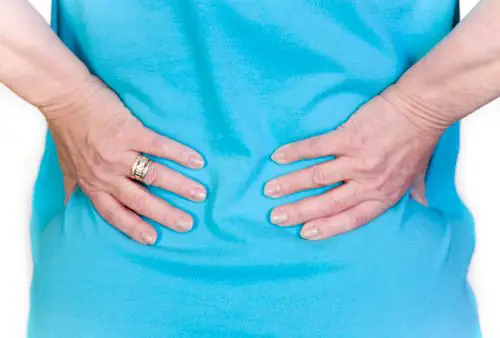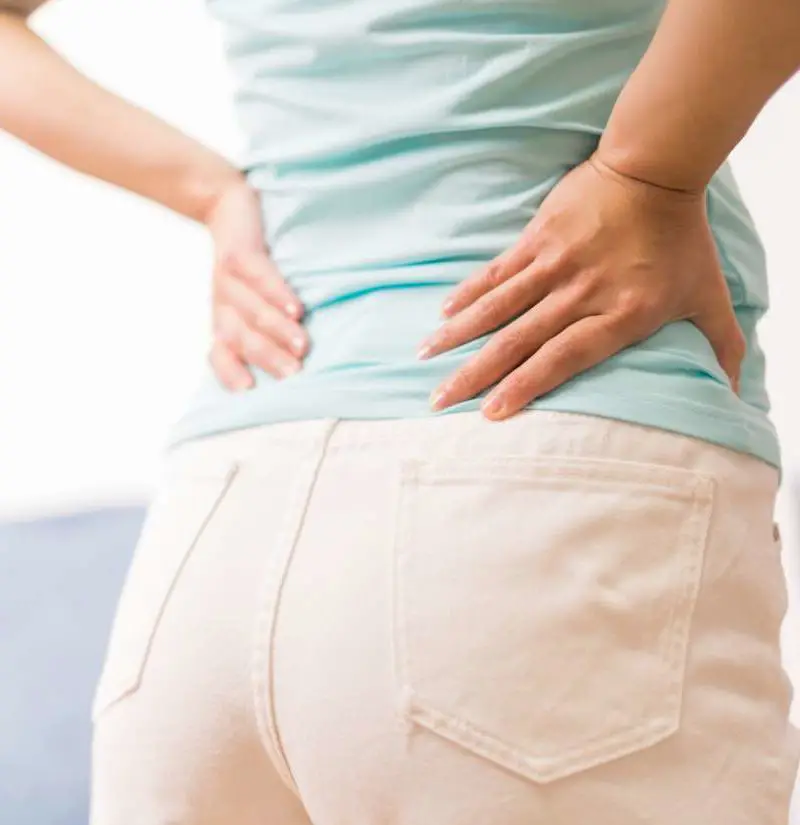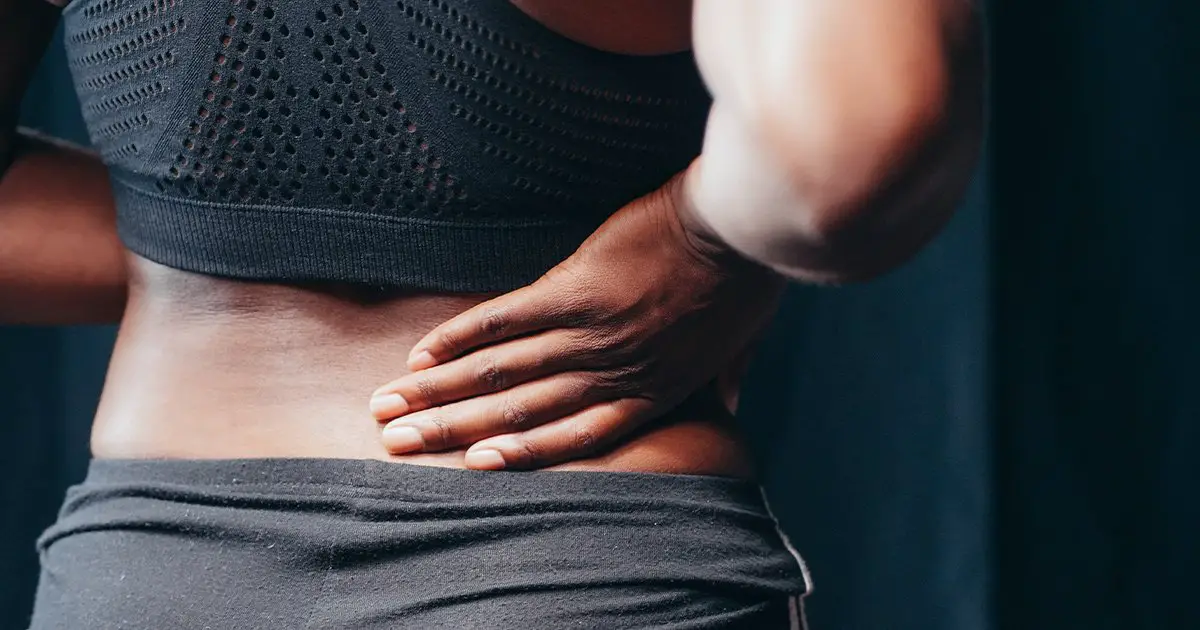Differences In Males And Females
Males and females can both experience pain when urinating, and the causes may be anatomy-dependent.
For example, females have shorter urethras than males. As a result, bacteria can often enter the bladder more easily, which can lead to UTIs.
A person can talk to their doctor about their risks for painful urination based on their sex as well as their medical history.
What Causes Urinary Tract Infection And Incontinence
Treating that condition may remedy your symptoms of UI and other related side effects. Incontinence can be caused by: Back pain has also been studied as cause for UI. Researchers think the activation of muscles in your abdomen may trigger back pain. Those muscles may affect your ability to properly hold or release urine.
What Causes Pain With Urination Pressure Or Fullness
There are 9 conditions associated with pain with urination, pressure or fullness, slow or weak urine stream and sudden urge to urinate.
Interstitial cystitis Interstitial cystitis is a condition that causes pain in the bladder or pelvic area, and frequent urination. Kidney infection Kidney infection, caused by bacteria, is marked by sudden chills and fever, pain, nausea and urinary issues.
Read Also: Exercise For Lower Back Pain Mayo Clinic
Anatomical Causes For Urinating Often
There are many actual and misidentified reasons why a person might have to urinate frequently or immediately. The most common physical reasons for this condition to exist include: excessive alcohol consumption, drinking too much liquid, prostatitis, urinary tract infection, pregnancy, drug side effect, idiopathic incontinence or bladder cancer.
Many of these causes are very common and psychologically-induced versions of the syndrome are often misrepresented as coming from a suspected or unknown physical source or process. In our experience, a majority of chronic urinary concerns are of a mindbody nature.
When To See A Doctor For Urination Pain

Painful or Frequent Urination in Men. Frequent urination without pain also can be a side effect of certain medications, or a symptom of diabetes. Most men who experience new problems with painful or frequent urination should see their doctor. This guide is intended to provide helpful information while you are awaiting further evaluation,
Don’t Miss: Is Aleve Or Ibuprofen Better For Back Pain
Back Pain And Frequent Urination Causes
There are many different causes that can trigger both lower back pain and frequent urination, including:
Kidney problems: The kidneys are located around your lower back and are off to each side. Kidney problems may begin as pain in the lower back and travel to the abdomen. Kidney problems can cause changes to urination, making it painful or more frequent.
Prostate problems: Inflammation of the prostate not only changes urination habits, but can result in lower back pain too.
Other causes: Other causes that can lead to lower back pain and frequent urination include pregnancy, weight gain, bladder or prostate cancer, uterine or ovarian cancer, pelvic abscess, and other types of pelvic growths.
A Link Between Back Pain And Urinary Incontinence
While under chiropractic treatment, its not uncommon for a patient to report improvement for an issue that seems unrelated to their chief complaint. For example, a patient with a temporomandibular disorder may experience an improvement in their jaw symptoms following treatment to the neck or upper back. Or treatment to improve hip function may also benefit the ankle or knee. In this article, were going to look at how treatment for low back pain may help a patient who also has urinary incontinence issues.
There are many potential causes for UI, but one contributing factor is weak pelvic floor muscles. Thus, it makes sense that treatment to address impaired pelvic function may benefit some UI patients. A 2018 Cochrane systemic review concluded that pelvic floor muscle training is more effective than either a sham treatment or no treatment for some individuals with UI.
This is where back pain comes into play. Its estimated that back pain will affect more than 80% of us during our lifetime. We often adjust how we perform everyday activities to avoid pain, both consciously and unconsciously. These abnormal movements can place added stress on other parts of the body. In the case of the lower back, altered function in the hips and pelvis is common.
To locate a Doctor of Chiropractic who has taken The ChiroTrust Pledge, google The ChiroTrust Pledge and the name of a town in quotes.
Read Also: Aleve Or Advil For Lower Back Pain
What Can I Do To Control Frequent Urination
There are several lifestyle changes and non-medicated ways to manage your frequent urination. These can include:
- Avoiding drinking fluids before going to bed.
- Limiting the amount of alcohol and caffeine you drink.
- Doing Kegel exercises to build up strength in your pelvic floor. These muscles support the organs in the pelvis, including your bladder. Kegel exercises are often prescribed to women after childbirth because of the stress having a baby places on the pelvic floor muscles.
- Wearing a protective pad or underwear to avoid leaks. This is a short-term solution that can help you keep living your life while your condition is being treated.
Can A Uti Cause Pressure On The Bladder
Urinary system infection. A urinary tract infection is among the most common causes of pressure on the bladder. Caused by bacteria, a UTI can be throughout the urinary tract rather than cystitis which occurs in the bladder. Signs may include a need to urinate however the failure to empty the bladder completely.
Also Check: Advil Good For Back Pain
How Is An Electromyogram Used To Diagnose Back Pain
Electromyogram or EMG is a test that involves placing very small needles into the muscles. Electrical activity is then monitored. Its use is usually reserved for more chronic pain and to predict the level of nerve root damage. The test is also able to help the doctor distinguish between nerve root disease and muscle disease.
Sacroiliac Joint Pain And Incontinence
For the last six months, I have had pain in my sacroiliac joint. The pain seems to come and go, but I dont know what brings it on or makes it go away. At the same time, Ive noticed some problems holding my urine and dribbling before getting to the toilet. Are these two problems related?
They might be. Research has shown that people with sacroiliac joint pain often have problems with urinary frequency and urinary incontinence . One reason for this may be the way the muscles around the bladder work with other muscles to form a force field.
A healthy force field gives strength to the structures holding the bladder in place. At the same time, the pressure within the abdomen increases from these muscles contracting. This helps support the low back and sacroiliac joint.
Whenever someone develops problems with urinary function, a doctor should be consulted. Once the physician rules out the possibility of a more serious problem, such as pressure on the nerves to the bladder, the condition of the muscles can be evaluated. A nurse or physiotherapist with training in urinary or bladder problems can help you retrain these important muscles.
Dont Miss: Severe Urinary Tract Infection Symptoms In Elderly
Also Check: Aleve And Back Pain
What Are The Differential Diagnosis And The Most Likely Diagnosis
This patient had a positive straight leg raise test and therefore a herniated disc was suspected. Red flag pathologies including infection, fracture and cancer must always be excluded. Spinal abscess was considered but a fever or raised CRP would be typically expected if this were the case, although WCC has been reported as normal in up to 40% of people with such abscesses. The patient had no history of immunosuppression or intravenous drug use. As she was young and had no history of steroid use or trauma, fracture was deemed unlikely. Referred pain from a visceral organ was a possibility. Given the history of urinary symptoms and positive urinary dipstick, pyelonephritis was an alternative in this case. Endometriosis can also present with back pain.
How To Tell If Your Back Pain Is A Kidney Stone

Pain that doesnt go away, when you move If its a backache, a change of position may momentarily alleviate the pain. With kidney stones, the pain wont disappear when you move, and some positions may even make it worse. 4.
Pain that doesnt go away, when you move If its a backache, a change of position may momentarily alleviate the pain. With kidney stones, the pain wont disappear when you move, and some positions may even make it worse. 4.
Recommended Reading: Is Motrin Good For Back Pain
Cauda Equina Syndrome And Incontinence
Cauda equina syndrome is a condition that causes squeezing or compression in the cauda equina sac of nerves at the base of the spinal cord, resulting in lower back pain and urinary incontinence. As the nerves are pinched, they are unable to properly function and may result in the involuntary loss of urine.
Cauda equina symptoms include weakness in the legs, numbness or tingling in the lower back and legs, and incontinence.
In some cases, cauda equina can be treated by surgically decompressing the spine, depending on the extent of damage involved with the nerve tissue.
When To Seek Medical Attention For Frequent Urination
Hesitancy The urge to urinate, but nothing comes out. When urinary frequency is impacting your life in a significant way or you have unexplained symptoms including pain in your back, a fever, chills, bloody or cloudy urine, or discharge from the vagina or penis you should seek medical attention.
You May Like: Advil For Lower Back Pain
When Does Back Pain Suggest Something Worse
The back pain you are feeling when you bend over is likely due to a muscle pull or strain. It could, however, be something more serious such as a herniated disc. If you are experiencing severe back pain, blood in urine, changes in bowel or bladder habits, pain when you lie down, or fever, you should get medical help right away.
How To Prevent Back Pain When Urinating
While many causes of lower back pain when urinating are challenging to prevent, there are a few things you can do to prevent urinary health problems in general. For example, you can reduce the risk of a UTI by staying well hydrated and urinating directly after sex . In addition, if your doctor identifies that you have a history of kidney stones, they will likely recommend a suitable diet and medication that prevents kidney stone formation.
You May Like: Does Motrin Help With Back Pain
Spine Disorders With Potential To Cause Nbd
- is a common cause of neurogenic bladder dysfunction. The spinal cord need not be severed to cause paralysis below the injured level of the spine . Bruising of the spinal cord or inadequate blood flow can damage the cord’s ability to transmit nerve signals.
- occurs when the spinal nerve roots in the lower back are compressed. Although cauda equina syndrome is a rare occurrence, it is a serious medical situation requiring urgent care.
Causes of CES include:
Is It Normal To Pee With Blood In It
Again, peeing blood is never okay or normal, says Linehan. Thats true whether youre having bloody pee with no other symptoms, or if it comes along with things like a burning sensation or pain in your back. If its to the point where youre seeing the blood in your urine, you need to get it checked out, says Linehan.
Also Check: Is Aleve Good For Back Pain
Whats The Difference Between Chronic Back Pain And Frequent Urination
Back pain that lasts more than three months is considered chronic. This pain is usually progressive. The cause of chronic back pain is harder to diagnose. Frequent urination is when you have to urinate more often than whats normal for you.
In these cases, other symptoms are usually present. Common causes of abdominal pain and frequent urination include: anxiety. drinking excess alcohol or caffeinated beverages. bedwetting.
Can Low Back Pain Cause Frequent Urination

Back pain and frequent urination causes. There are many different causes that can trigger both lower back pain and frequent urination, including: Kidney problems: The kidneys are located around your lower back and are off to each side. Kidney problems may begin as pain in the lower back and travel to the abdomen.
Read Also: Mayo Clinic Low Back Pain Exercises
Should I Be Worried If I Have These Conditions And Frequent Urination
If you ever have a symptom that is outside of whats normal for your body, reach out to your healthcare provider. In some cases, pregnancy, for example, frequent urination is completely normal and nothing to worry about. However, in some conditions, your caregiver may want to know if you are urinating much more than you typically do. Theres a very wide range of conditionswith varying levels of seriousnessthat could cause frequent urination. It is always safe to discuss your symptoms with your healthcare provider.
What Causes The Infection
The E. coli bacteria cause UTIs in 85% of cases, with other bacteria making up the remaining 15%. There are several reasons bacteria enter the urinary system. These include pregnancy, menopause, and sexual intercourse. Urinary catheters invite bacteria into the urethra and bring a high risk of a UTI. Other reasons include bladder stones and urinary tract malformation.
Don’t Miss: Aleve Good For Back Pain
When To Contact A Health Care Provider
Needing to relieve the bladder more often than usual for just a day may not be a major cause for concern. But if the urge to pee frequently persists for multiple days or is accompanied by other symptoms, it is likely time to seek medical care.
These are some of the symptoms to watch for when you have frequent urination. If any of these symptoms are present, contact your doctor to have the issue checked out and to determine the reasons for excessive urination.
- Back pain
Treatment For Lower Back Pain And Frequent Urination
Treatment for lower back pain thats accompanied by frequent urination is largely dependent on the cause. For example, antibiotics may be prescribed when an infection is present, and exercise may be recommended if weight loss is necessary or to strengthen the back muscles. Your doctor may also remove any abnormal tumors, abscesses, or growths.
Some causes of lower back pain and frequent urination arent preventable, but you can try and lower your risk by controlling factors that are. Regularly exercising, taking the necessary precautions or reducing your risk of urinary tract infections, and drinking plenty of water to flush out bacteria and toxins are all good tips for prevention.
Also Check: How Does A Diuretic Help Back Pain
When To Go To The Er For Lower Back Pain
If youve been experiencing back pain for less than six weeks and the doc doesnt note anything alarming, you most likely wont be sent for further testing. However, if your clinician does note something as a red flag, they may order you an ultrasound, CT scan, or whichever imaging they think is the most appropriate.
Spinal Disorders And Neurogenic Bladder Dysfunction
Often times spinal disorders associated with injuries that result in nerve damage are linked to Neurogenic Bladder Disorder , which refers to urination issues. Neurogenic is a term for the nerve tissues that stimulate an organ or muscle to properly function.
With NBD the nerves that control the bladder and other muscles involved with urination may cause the bladder to be under or overactive.
When the nerves for bladder sensation or function become irritated, inflamed, or compressed, dysfunctions such as frequent urination, the sudden overwhelming urge to urinate, or involuntarily voiding the bladder may occur.
NBD is commonly caused by spinal cord injuries . Accidents that cause bruising or constrict blood flow along the spinal cord can damage the ability to transmit nerve signals.
Herniated discs, infections, lesions, lumbar tumors, and fractures along the spine can also cause back pain and damage to the spinal nerves leading to bladder dysfunction. These conditions may also cause Cauda Equina Syndrome , a serious medical issue requiring immediate attention.
Read Also: Advil Or Tylenol For Back Pain
The Link Between Your Neck And Your Bladder
The human neck is fascinating. Along with the spinal cord, its strong enough to hold you up with the help of surrounding muscles of course as you stroll through life. Yet at the same time, its fragile.
Damage to your neck can affect parts of your body that you may not have considered, like your bladder.
At Houston Pain Specialists, board-certified pain management specialist and anesthesiologist Hui Kang, MD, has the expertise to diagnose and treat the cause of your neck pain. In this blog, we discuss the link between your neck and your bladder.
Painful Or Frequent Urination In Men

Painful or frequent urination is a common problem, especially in older men. Urinary tract infections, kidney stones and prostate problems can all produce these symptoms. Frequent urination without pain also can be a side effect of certain medications, or a symptom of diabetes.
Most men who experience new problems with painful or frequent urination should see their doctor. This guide is intended to provide helpful information while you are awaiting further evaluation, or can add to what you may have already learned after your visit with a doctor.
Please keep in mind that this information cannot replace a face-to-face evaluation with your own health care provider.
Pain or burning during urination and frequent urination can be caused by the same medical condition. However, it’s helpful to focus on one symptom or the other.
Choose which symptom is presently bothering you the most.
Pain or burning can be a sign of a several different medical conditions, including
-
a urinary tract infection
-
a prostate problem, such as a prostate infection
-
a sexually transmitted disease
To continue reading this article, you must log in.
- Research health conditions
- Prepare for a doctor’s visit or test
- Find the best treatments and procedures for you
- Explore options for better nutrition and exercise
Don’t Miss: Aleve For Lower Back Pain